Hello. <3 This opinion piece attempts to vocalize one of the other angles that has come up for me.
The COVID-19 pandemic was declared a full-blown “state of emergency” in most jurisdictions, like a 9/11-scale event. But do you remember when big public health issues did not require a “war footing”? Approaching 40 years old, I sure don’t.
Drugs should be a public health issue again, because the war against drugs has always done far more harm than [illicit] drug use itself. Pandemics are also public health issues, and should only be turned into wars in far more deadly situations, I think 10x-100x worse than COVID-19. Wars are always filled with fogs of unaccountability, collateral murders, profiteering, and known and unknown atrocities. For reasons like these, it is always necessary to question the premises of any type of war.
When a law is enacted which threatens prison for any offense, that behavior has been criminalized — declared illicit. The prosecution and externalities of the “War on Drugs” has devastated multiple generations. It has had disproportional impacts in some neighborhoods, minorities, and sub-cultures. Most think it is clearly ineffective and counterproductive, yet only 11 states hold legal cannabis so far.

Freer citizens once had the autonomy to put want they wanted into their own bodies, absent harm to others. This seems like a minimum running requirement for any definition of sovereignty.
But for over 100 years, the public health issue of drug misuse has been criminalized. This compounds the direct public health threats with unregulated drug safety, more disease spread in stigmatized undergrounds, financially crippling fines, decades in prisons, arms races within illicit markets, and potentially less neighborly law enforcement.These conditions also compound poverty, decreasing average life expectancy for those who get caught up. Illicit markets also require far more dangerous risks to do business, raising prices for average drug users, therefore increasing costs for the most addicted to steal and commit other crimes.
The “solutions” to [illicit] “drugs” have caused exponentially more harm than the direct “problems” of those drugs alone. Meanwhile, big pharma gets away with murder legally and citizens assume [licit] “medicines” have been thoroughly tested as safe enough to put in their body.

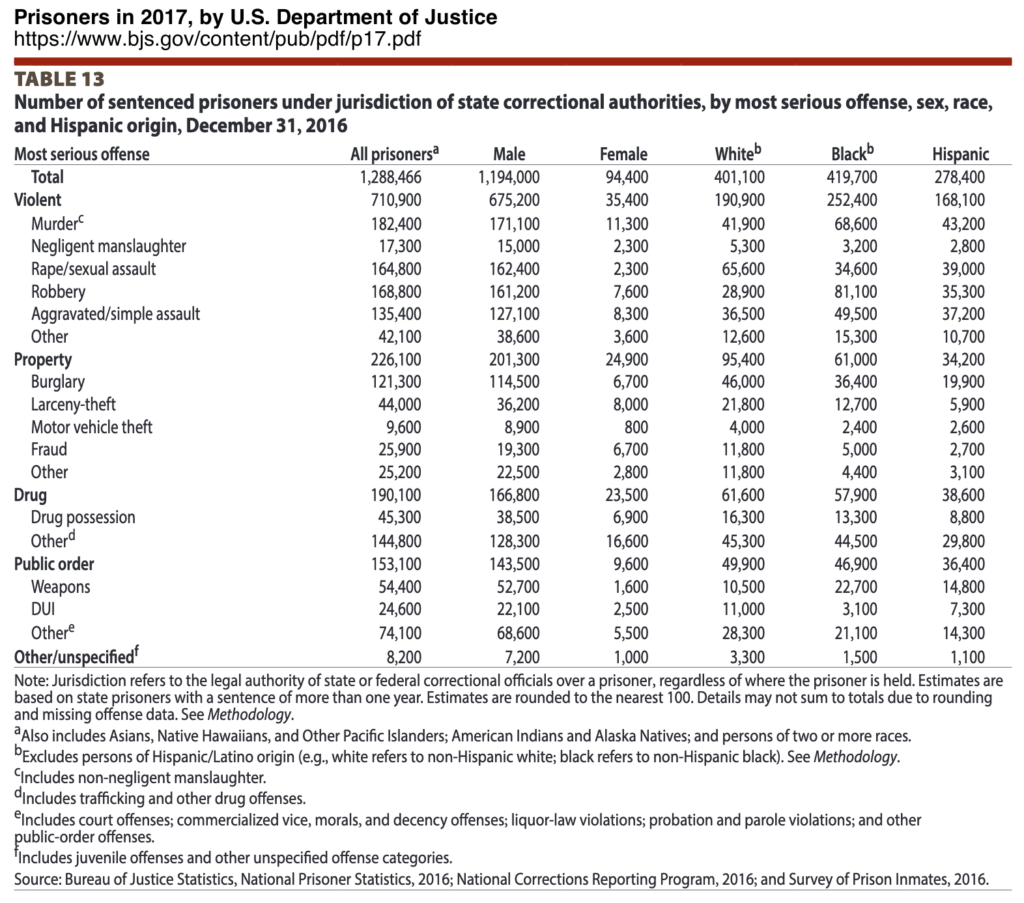
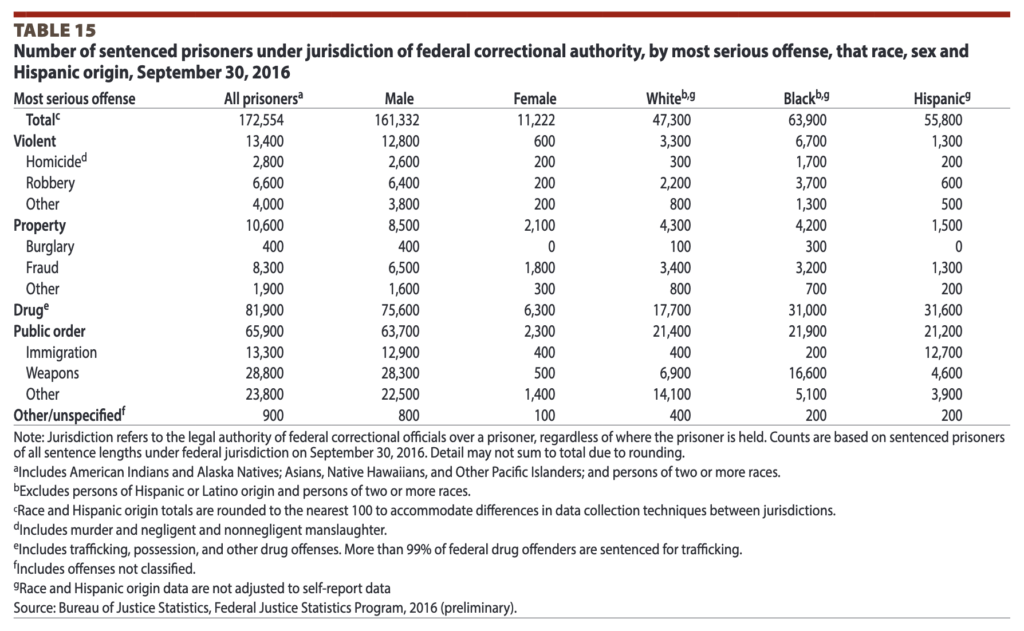
So between state and federal levels, the latest data tracks the land of the free with about 272,000 prisoners inside for drug charges. If only 80% don’t otherwise pose enough societal risk to imprison… then that is just one snap shot of 217,600 people with destroyed lives which could have been prevented by legalizing drugs.
Of the 3,789,800 adults on probation in the US at the end of 2015, 25% (approximately 947,450 people) had a drug charge as their most serious offense. So overall, 1.5% of the adult population is likely on probation right now. Have you ever lived a year of your life worried that rolling a stop sign could bring you in prison? Living with that much legitimate fear also has negative health consequences.
Our collective institutions have a monopoly on the ‘legitimate’ use of force, outside of direct self-defense. If they are democratically controlled by we the people, then there is a risk that ‘a majority’ can create laws to imprison subsets of various minorities [at higher rates]. But restricting anyone’s basic freedoms is never to be taken lightly.
Prisons are not healthy for people in any dimension. Imprisoning a person has a high probability of destroying their life. Many lose their basic right to vote, because of laws that not just. What’s more, it’s the most legal form of human slavery in America, under the 13th Amendment. If you don’t think we already have some kind of police state, then where is the line for you? Since the war on drugs peaked, the prison-industrial complex has diversified into the “war of terror”. The corporatocracy has also circled back to capitalize on age old fears of immigrants as in the beginning of the war on drugs.
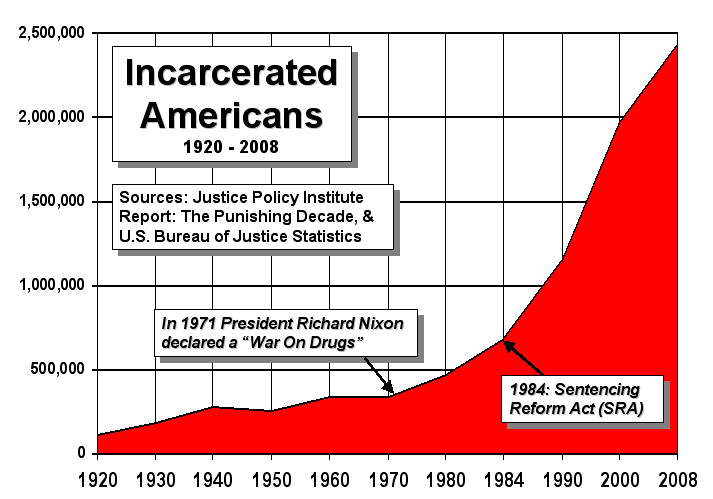
Given the observable context throughout my life, why would I trust these institutions to try to save hypothetical lives on black-swan-level, while we the people can’t get it to stop proactively destroying hundreds of thousands of other lives? Few have decent track records in my book.
We’ve already got an urgent, backlogged need to reduce criminalization and state-enforced harm — not increase it. I don’t want to dare anyone to see how much closer we can get to 1984 before swinging the pendulum back. And I don’t want the smoking gun to come in the form of something censored from social media.
These societal structures need to be seriously course-corrected and repaired before they attempt any new massive endeavors, which have grave unforeseen consequences. Governments can be wildly dangerous vehicles. Are we the people even driving?
So when thinking about our modern world of pandemics, please understand that we should avoid criminalizing anything unless it is absolutely necessary. As I’ve described in my other videos and essays, there were no risk assessments of COVID-19 realistic enough to have ever resulted in the suspension of basic rights nor threats of prison.
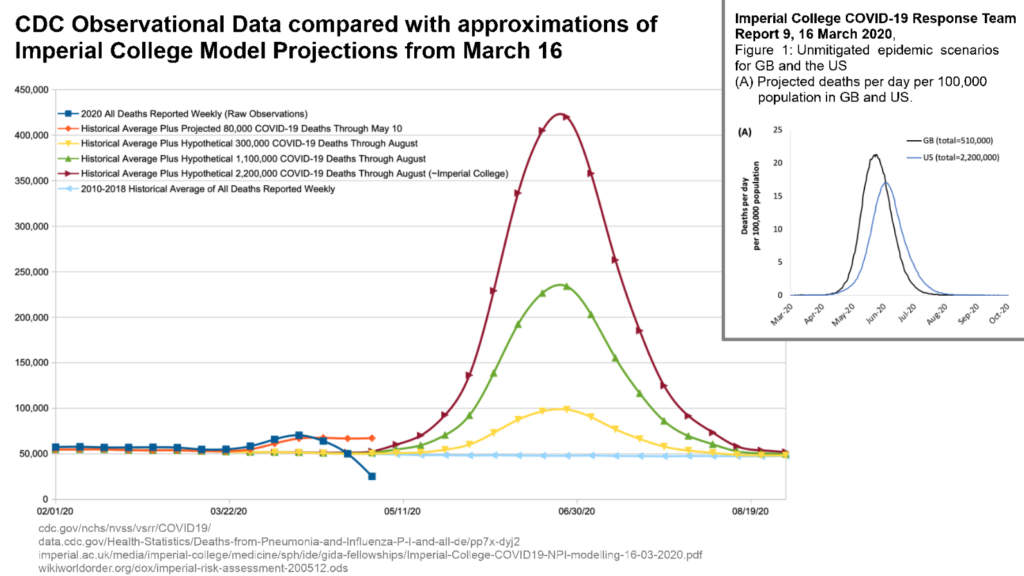
It is also inexcusable for any leaders to float the possibility of forcing hypothetical future vaccines on anybody in the future for COVID-19, or any other virus. That is not science-based policy or planning. And vaccine manufacturers escape liability for harms caused by vaccines, which are handled by the National Vaccine Injury Compensation Program. Society needs to find better methods of collective protection than violating bodily autonomy. If we do not have informed consent over our own bodies, what do we have? Some would say we have tyranny. As mentioned above, the War on Drugs has already stripped citizens of one fundamental aspect of sovereignty.
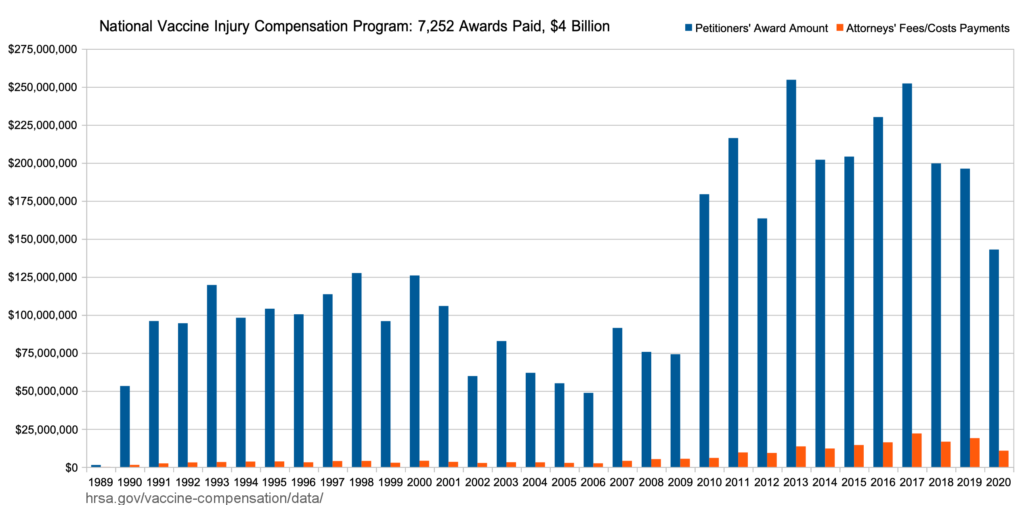
To address another possibility… various government actors have periodically raised theories that COVID-19 is a biological weapon. If this were found or revealed to be true, then there might be a new case to be made about a “War on COVID-19”. But in such a reality, I might argue that realizing biological weapons is unlikely to be the policy of one rational state against another. If it was released accidentally, then that is apocalyptic incompetence. An intentional release would be more accurately described as coming from a tiny clique of psychopaths releasing a grand experiment on the global population. It’s like comparing wars of counter-insurgency with traditional wars of empire: apples and oranges.
In a biowarfare scenario, we are still directly battling a virus. The default should be to treat citizens as if this is a public health issue. And this whole season should provide ample reasons to promote bio weapon disarmament alongside nuclear weapons. The risks of even defensive biowarfare research greatly outweigh the hypothetical gains.
I’ll leave you with the words of General Barry R. McCaffrey, Director of the Office of National Drug Control Policy under President Bill Clinton from 1996 to 2001. This is from a keynote address at the National Conference on Drug Abuse Prevention Research in 1996.
“We have a 1997 budget before Congress now, and we need help. We need to get the budget of $15.1 billion and the $250 million supplemental funding request passed by Congress. Most of that money is for law enforcement and prisons, and that is okay. Drugs are wrong, and you have to uphold the law. We must have law enforcement authorities address the issue because if we do not, prevention, education, and treatment messages will not work very well. But having said that, I also believe that we have created an American gulag. We have 1.6 million people behind bars, and probably two-thirds of those in the Federal system are there for drug-related crimes.”
– General Barry R. McCaffrey, 1996
Cross-Posted:
https://medium.com/@wikiworldorder/drug-use-and-pandemics-as-public-health-issues-ad0f2840b27d
https://steemit.com/politics/@wikiworldorder/drug-use-and-pandemics-as-public-health-issues
https://www.bitchute.com/video/7r2jw5oRkock/
